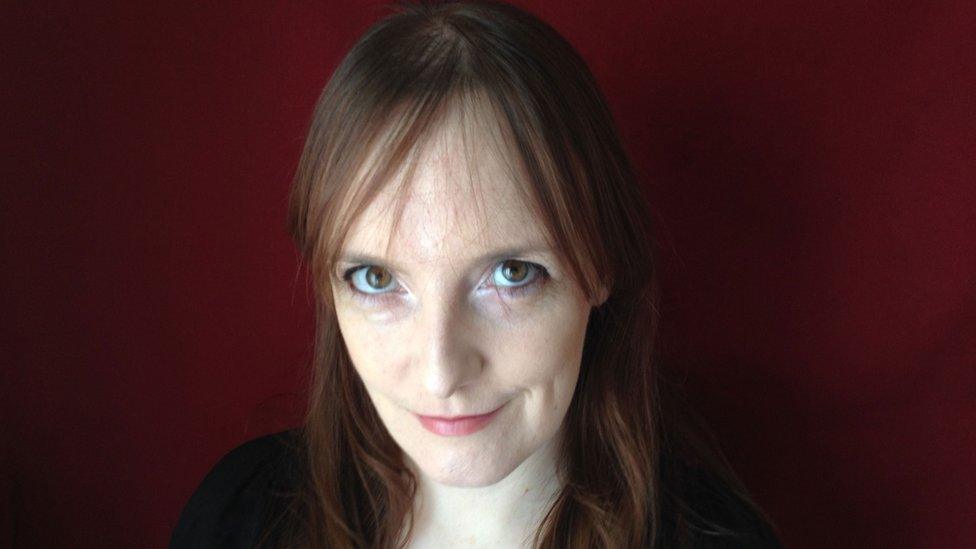Baileys Prize reveals 'daring and intimate' shortlist
- Published
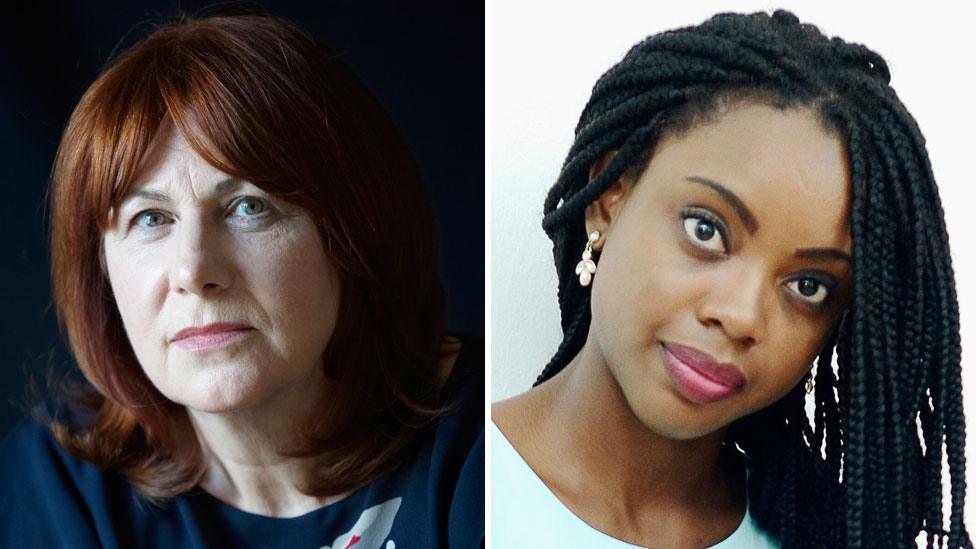
Shortlisted: Previous winner Linda Grant and debut novelist Ayobami Adebayo
This year's shortlist for the Baileys Women's Prize for Fiction has been described by the judges as "daring and intimate".
The six-strong list features one previous winner, Linda Grant, and one first-time novelist, Ayobami Adebayo.
Three British writers are joined by one Canadian, one Nigerian and one US author.
This year's prize is the last one that will be sponsored by liqueur company Baileys.

Here's a closer look at this year's finalists:
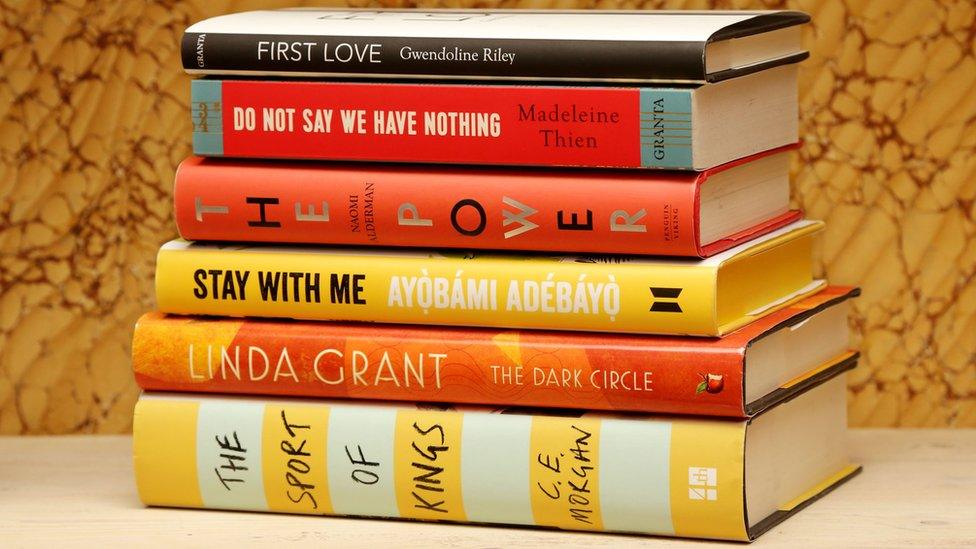
Stay With Me - Ayobami Adebayo (Nigerian)
Set against the social and political turbulence of 1980s Nigeria, Stay with Me is a story of marriage and motherhood.
Yejide knows the only way to save her marriage to Akin is to have a child. When his family insist he takes a second wife she is livid with jealousy and becomes desperate to get pregnant before her rival.
The Power - Naomi Alderman (British)
The Power imagines a world in which almost every woman suddenly develops the ability to electrocute people with a flick of their fingers.
The Dark Circle - Linda Grant (British)
Diagnosed with tuberculosis in post-war London, an East End teenage brother and sister are sent away to a sanatorium, where they find themselves trapped in a sterile environment in the company of a host of extraordinary characters.
The Sport of Kings - CE Morgan (American)
A contemporary portrait about the scars of the past that run through an American family, The Forges, who are first-time horse breeders.
When an African-American man, just out of prison, comes to work in the stables, the ugliness of the farm's history rears its head.
First Love - Gwendoline Riley (British)
Neve, a writer in her mid-30s married to an older man, Edwyn, draws the reader into the battleground of her relationship.
Do Not Say We Have Nothing - Madeleine Thien (Canadian)
Thien's novel, shortlisted for the Man Booker Prize in 2016, brings to life one of the most significant political regimes of the 20th Century - China's Cultural Revolution.
The story is told through the eyes of a young Chinese woman who has fled to Canada from Tiananmen Square.

Grant won the prize in 2000 for When I Lived in Modern Times.
Margaret Atwood's Hag-Seed and Sarah Perry's The Essex Serpent were among the books on the longlist that failed to make the cut.
Film producer Tessa Ross, the chair of this year's judges, said it had been "quite a challenge" to whittle the longlist of 16 books down to six.
"From Kentucky in the 19th Century to a dystopian future, to a post-war sanatorium in the English countryside to 1980s Nigeria, the shortlist celebrates narratives that are daring and intimate, that examine the depth of human experience in unique and compelling ways," she said.
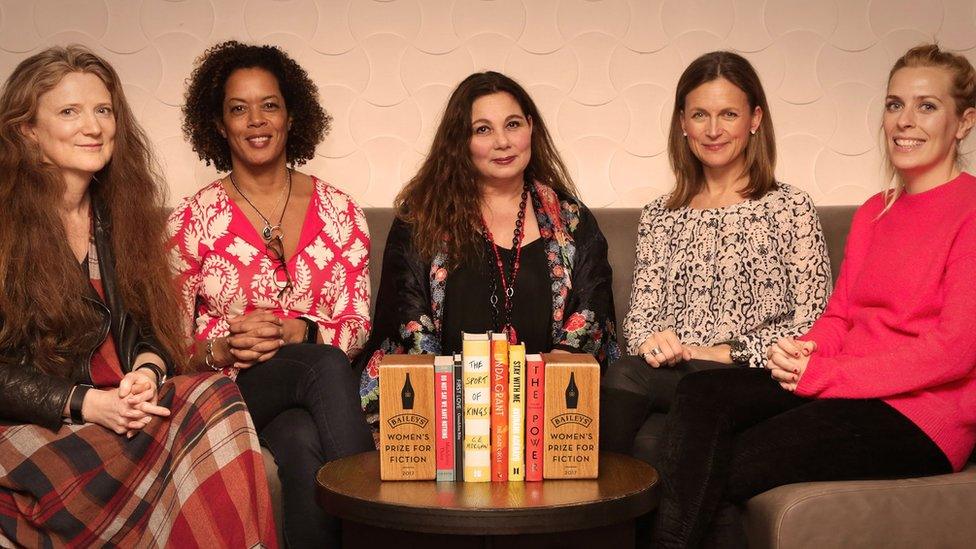
Baileys Prize judges (l-r): Sam Baker, co-founder of The Pool, novelist Aminatta Forna; Tessa Ross, CEO House Productions; broadcaster Katie Derham and comic Sara Pascoe
"We were both impressed and moved by memorable characters from a young woman fleeing her home in China to a writer coming to terms with her failing marriage. These were the six novels that stayed with all of us well beyond the final page."
The winner will be announced at London's Royal Festival Hall on 7 June.
Last year's winner was Lisa McInerney for The Glorious Heresies.

What is the Women's Prize for Fiction?
The Women's Prize for Fiction is awarded annually to what judges consider the best novel of the year written in English by a female author
It was co-founded by author Kate Mosse, who believed female authors were often overlooked for major literary prizes
Previous winners of the prize, which has been running since 1996, include Zadie Smith, Ali Smith, Lionel Shriver and Chimamanda Ngozi Adichie
Orange sponsored the award for 17 years before Baileys took over in 2014
The winning author receives £30,000 in prize money

Follow us on Facebook, external, on Twitter @BBCNewsEnts, external, or on Instagram at bbcnewsents, external. If you have a story suggestion email entertainment.news@bbc.co.uk, external.
- Published8 March 2017
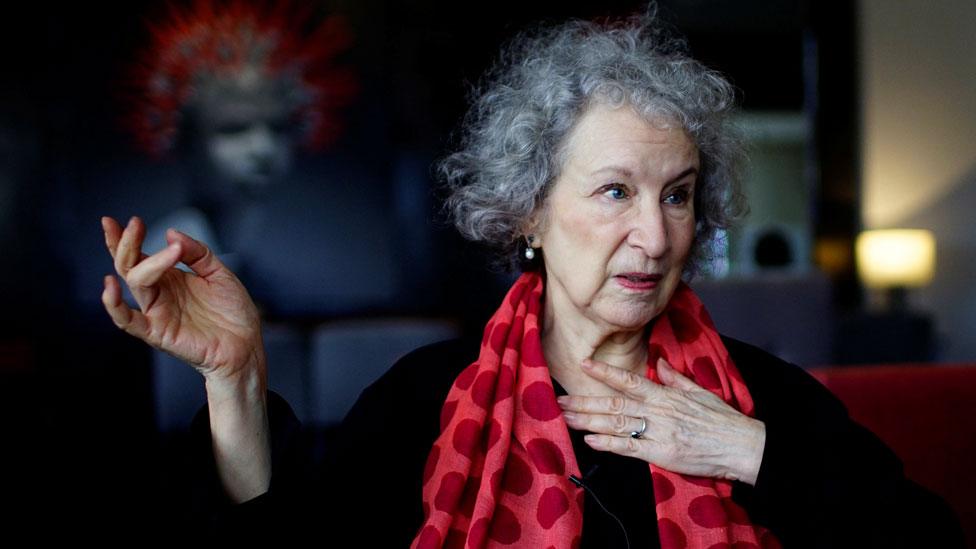
- Published16 March 2017
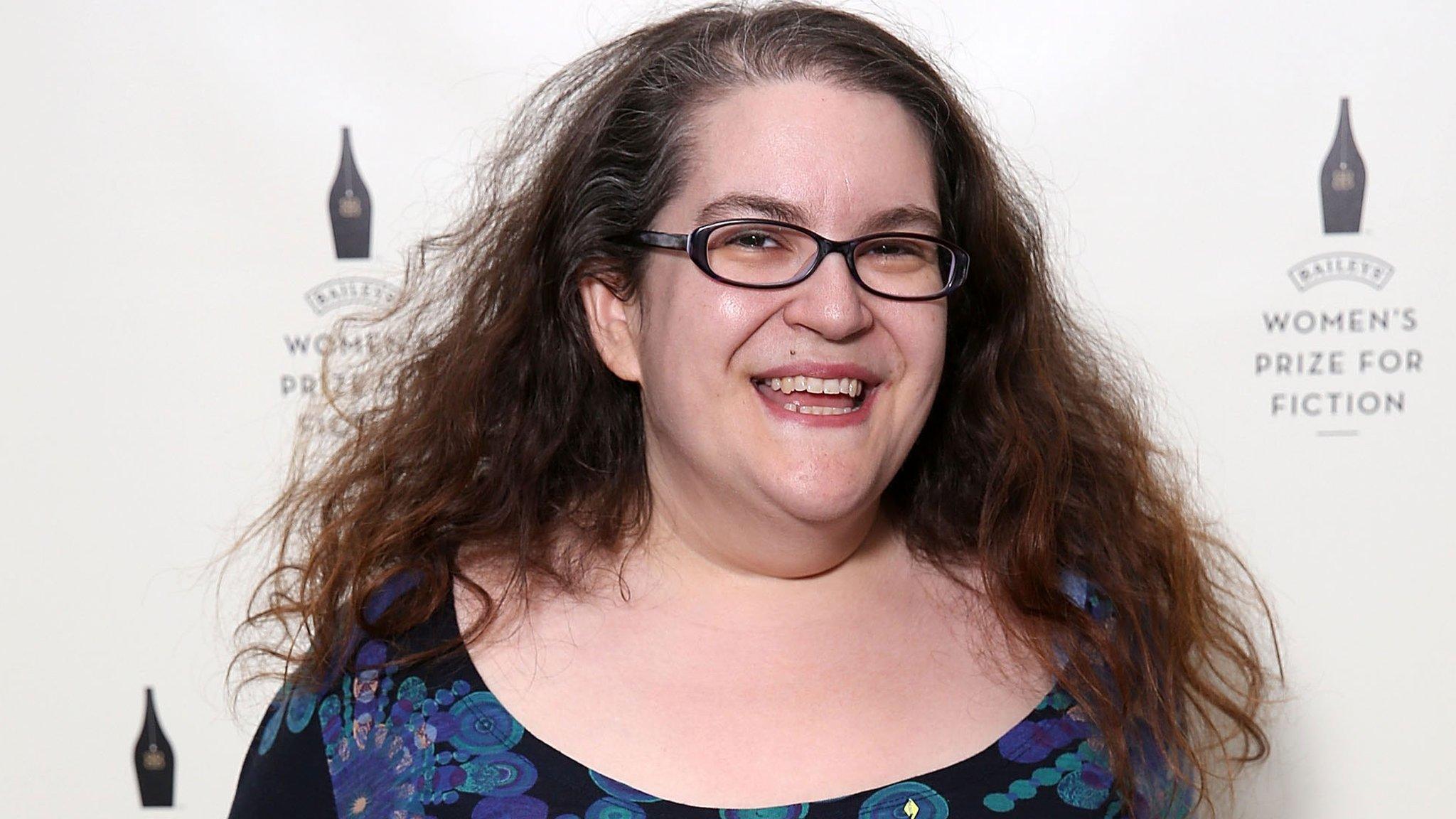
- Published31 January 2017
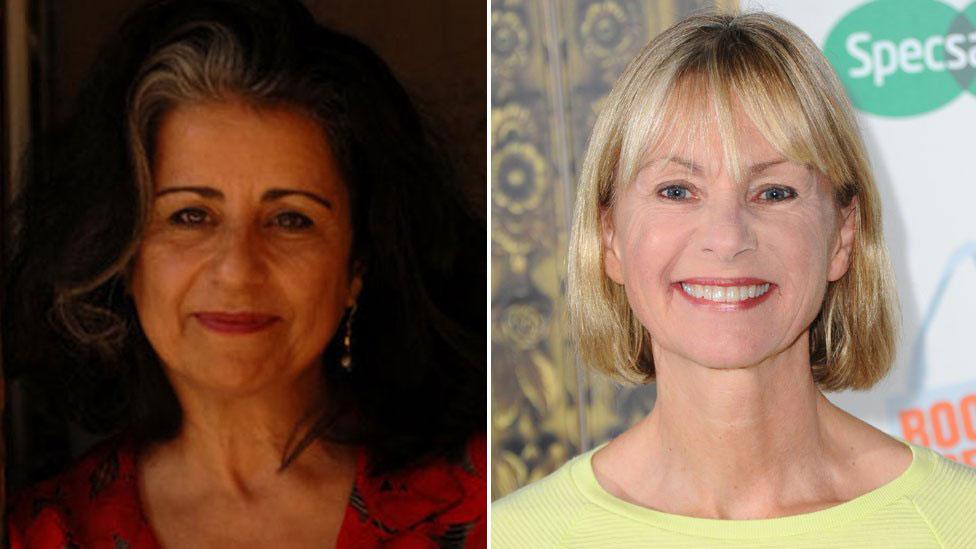
- Published30 January 2017
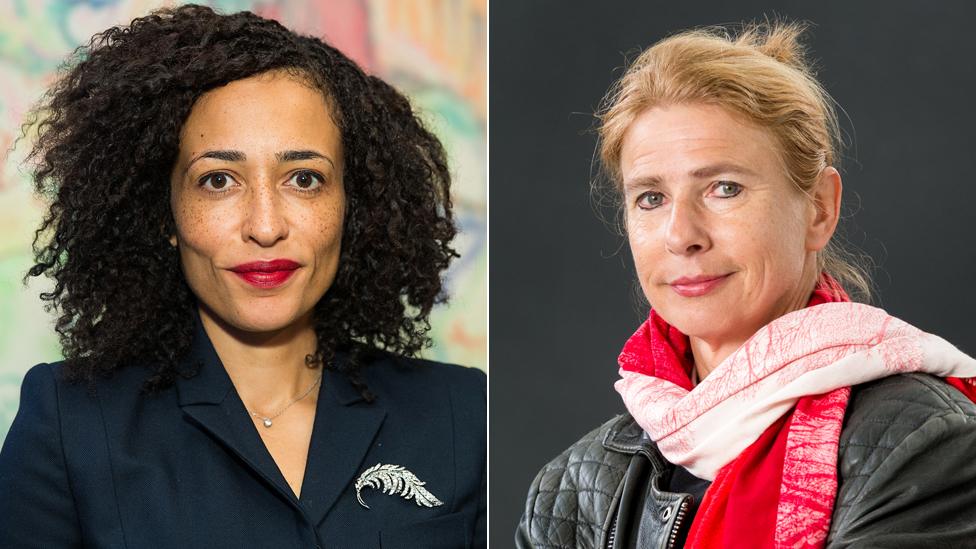
- Published8 June 2016
